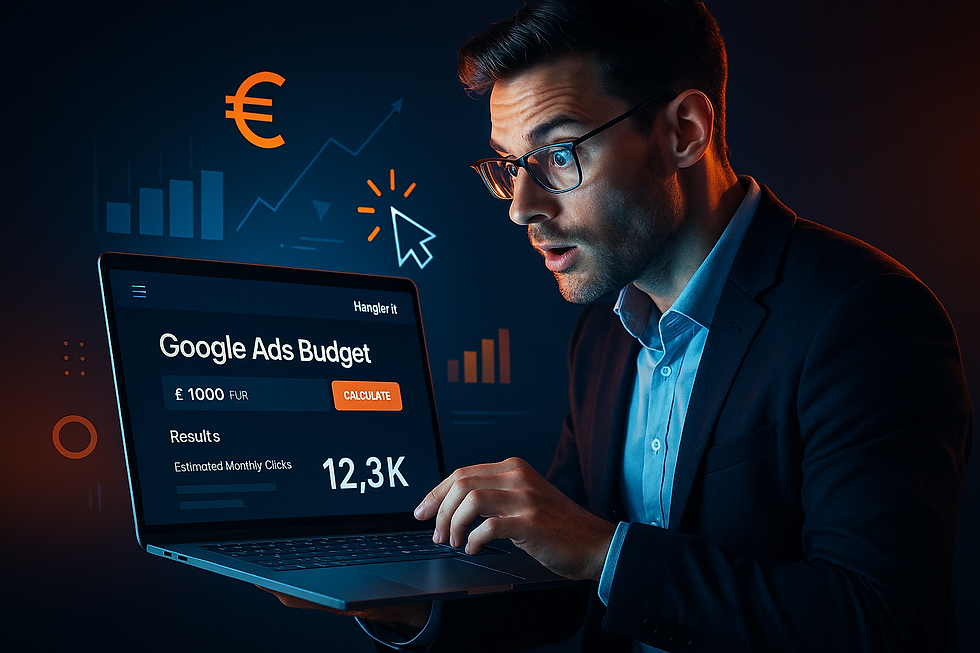Does it still make sense to continue creating content and why?
- Redazione

- Oct 22, 2024
- 3 min read

Everyone talks about sharing valuable content, but have you ever wondered what role it plays in your strategy? Why create educational content or teaser products and share them if the sales result is not immediate?
The question is not rhetorical: it is asked to us daily by our clients who we ask to invest in activities that do not seem directly related to sales.
In this article I will try to answer these two questions.
Summary:
The premise
I'll tell you about a typical afternoon at the agency: I'm working intently on a project (mostly in the office at the moment due to teleworking), happy to be able to dedicate myself fully and with maximum attention to what I'm doing and suddenly the phone rings.
"Good morning, can I speak to the owner"?
"Here" I think to myself, someone who wants to sell me something I don't need. I listen to the first words out of kindness thinking about how not to forget where I was and if the topic is slightly interesting I ask to send me an email that I will never read.
Does this situation sound familiar to you?
You have probably found yourself in both situations in your working life: both receiving this type of phone call and having to use it to make yourself known.
I know what I'm talking about, in my "career" I've been a telephone salesman for baby products and a local salesman for fresh products in supermarkets. Two cold selling situations that are not to be laughed at.
It doesn't just happen with the phone
I am not stigmatizing the use of the phone, mind you: the exact same thing happens with LinkedIn sales messages immediately after connecting, with newsletters you never signed up for, with the same advertising on Google thinking that bringing people to your website is enough to sell.
What has changed today
Beyond the objective impossibility of visiting companies at this time, today we all have little time and less desire to be interrupted.
For a year and a half people don't want to receive you, they are afraid that you will bring the virus to their company (Quote from a contact of mine a few days ago)
It is easy to find information online, there is too much of it and of poor quality. It is almost "tiring" to find what you need.
And I'm not just talking about a consultation or the right article that isn't just poorly written fluff. I'm also talking about the products: first you check on Amazon, then you search on Google, then you read the reviews... and in the end you trust who?
When it comes to products, you place your trust in Amazon or in a "trusted" e-commerce. When it comes to services, you trust word of mouth or whoever you have met in one way or another, even superficially.
And here's the point
Every company (regardless of whether it sells to consumers or companies, and considering the complexity of the purchasing process) must plan a strategy based on these two points:
Presence of decoy products/services and/or training content
Using progressive retargeting strategy to move people further along the purchasing journey
Why?
It's easy to say: imagine a situation opposite to the one described at the beginning of this article.
Imagine that your customer finds you when he needs you (or that he discovers you and begins to trust you, where "you" also means your company) and that you can continuously and progressively provide him with information to make him:
More aware of what he needs
Learned about what you could do
Motivated to contact you
The situation is changing, isn't it? Yet many, many, many SMEs still do not have the strategic bases in their company to be able to create a sales path that is not cold, but progressive.
The secret to making it work
But be careful: the secret for this "machine" to work is proper planning, combined with the use of online advertising and contact relationship plans (e.g. automatic newsletters) to take people from the status of marketing leads to the status of sales leads.
But just being aware of it is the beginning of the road to a correct strategic marketing design. And you? Have you set up a progressive sales system in your company?



Comments